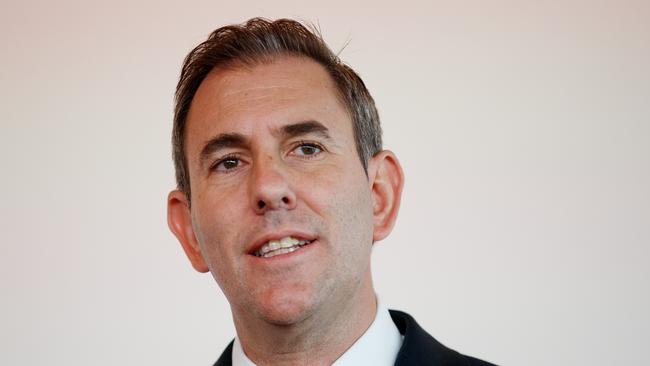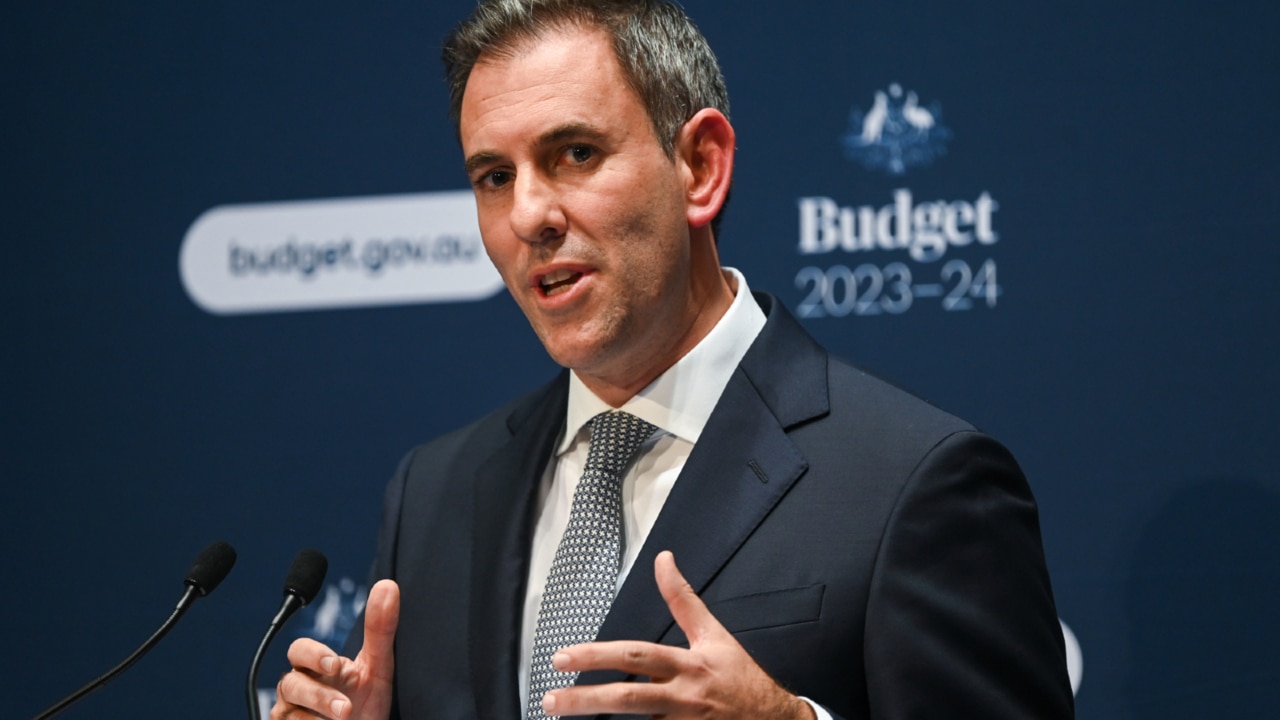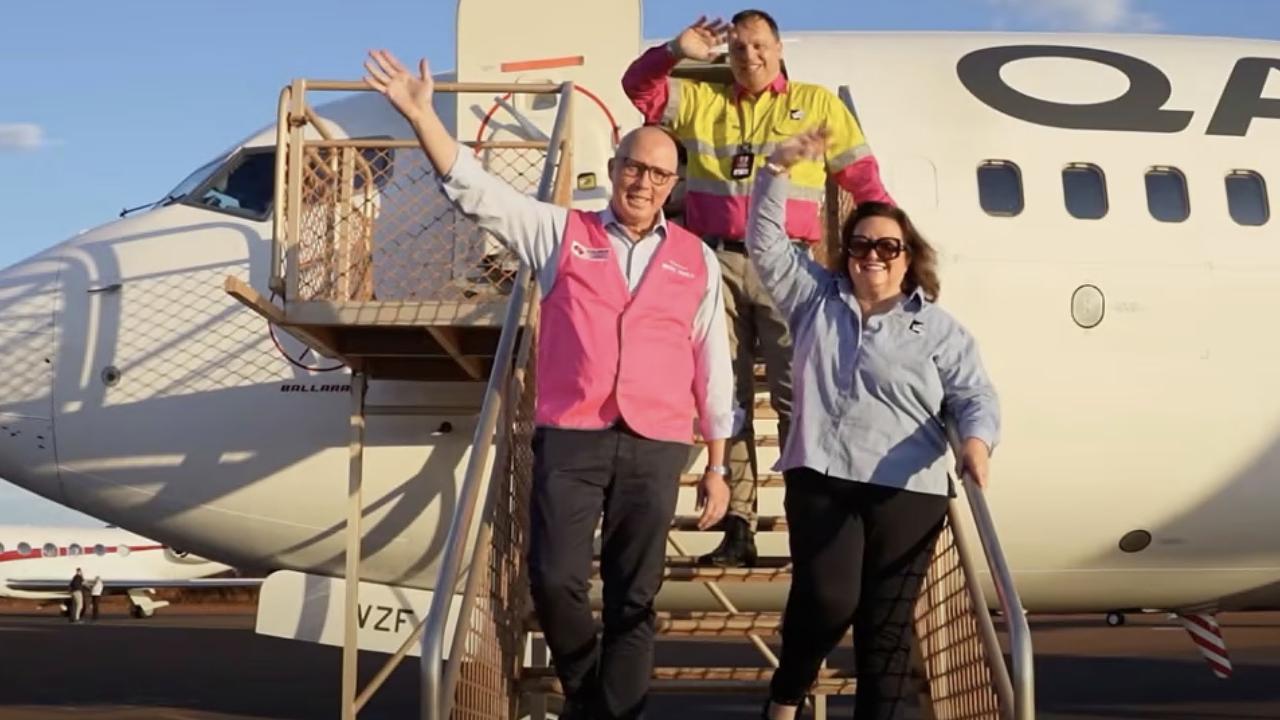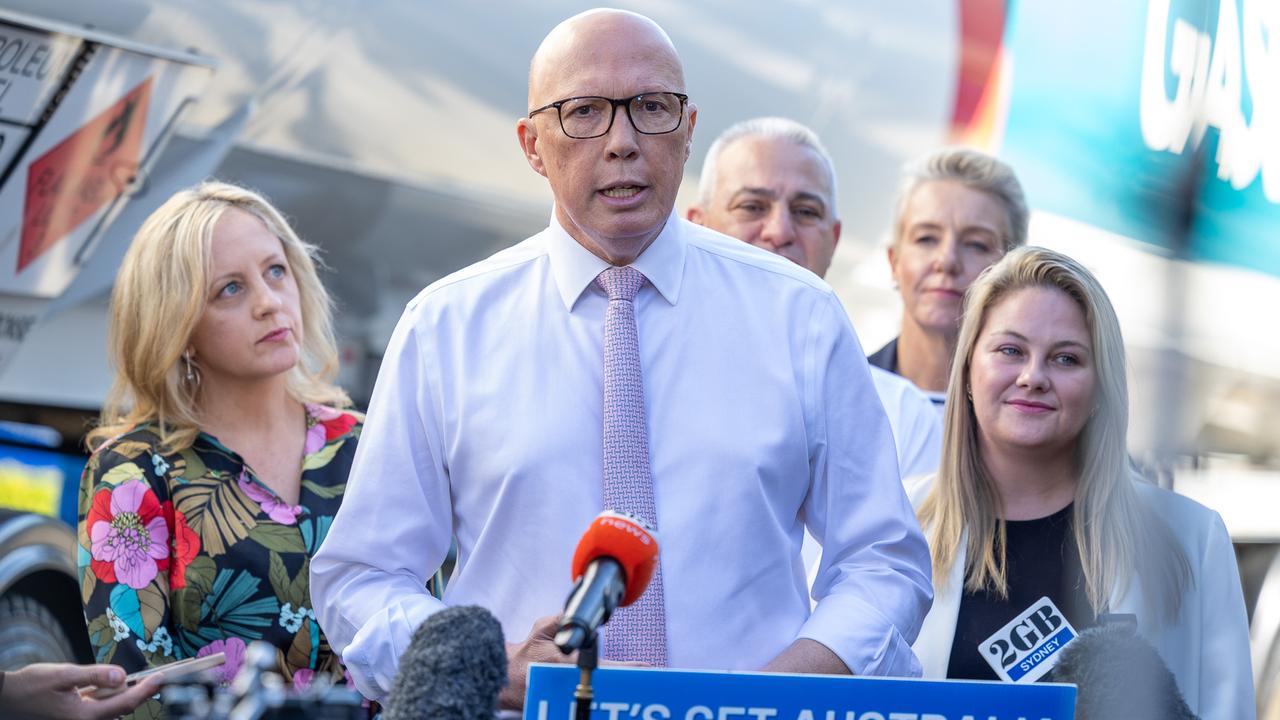Treasurer Jim Chalmers faces $12bn fiscal year overspend
The federal Treasurer is facing a $12bn spending overrun this financial year, adding to fears of an inflationary budget.

Jim Chalmers is facing a $12bn spending overrun this financial year, adding to fears of an inflationary budget, as KPMG has warned fiscal policy has fallen out of alignment with the RBA and spending should have been reined in months ago.
With Anthony Albanese under pressure to deliver cost-of-living relief, and unions pushing for wage growth, the Coalition on Monday issued a call for the government to deliver a contractionary budget to ease the pressure on families.
Economist Chris Richardson told The Australian that the net impact of government spending and tax according to Treasury’s own numbers was already running at almost half a percentage point of national income this year.
If that was to be repeated in the May 14 budget, the job of bringing inflation down would be made much harder.
“If the government wants to do something about the cost of living, then more than anything else it wants something to be done about inflation,” Mr Richardson said.
“You can play around with the symptoms all you like but the cause here is inflation.
“And herein lies the problem; the IMF as recently as last week said that if you want to help your central bank with inflation then, yes, you need to be contractionary.
“So how do you get demand down as a government? You do the opposite of what governments are doing; you raise taxes and cut spending.
“Instead, we are raising spending, we are putting more money onto the economy. When you put more money into an economy with an inflation problem and we have made progress, it is not defeated.
“We are not the only ones here. The government mentions the relative yardstick, that is saving more money than the last government, which is true but it’s also irrelevant.
“For the financial year just finished, the financial decisions by the government have worsened the budget by almost $12bn. That’s half a per cent of national income.
“If I’m looking for the impact on inflation, I’m looking at the net of spending more and taxing more, if those things equalled I wouldn’t be fussed, but what they have done with spending has outstripped what they have done with tax.”
KPMG on Monday released a paper suggesting fiscal policy had fallen out of alignment with monetary policy ever since the RBA started lifting interest rates in response to a stronger than expected pick-up in inflation from May 2022.

Chief economist at KPMG Brendan Rynne said the challenge was for “public spending to be progressively wound back from its current 27 per cent of GDP to pre-pandemic portions of economic activity – around 24 per cent.”
“To date, we have seen monetary policy do the heavy lifting in trying to bring domestic inflation back within the target band,” Dr Rynne said. “Government spending as a proportion of GDP – it now sits substantially higher today than it did pre-Covid and represents about 40 per cent of the incremental increase in real GDP between the start of the pandemic and the last financial year.”
The report – Macroeconomic policies for inflation: lessons learned from Covid-19 – concludes that fiscal policy should avoid overcompensating for income losses during future economic downturns.
It also argued that policies such as a short-time work programs, and mechanisms allowing business support to be treated as debt or equity, should be designed today so they could be immediately rolled out when the next crisis was triggered.
Leading independent economist Saul Eslake said the most recent CPI data – which showed inflation increasing a full 1 per cent during the March quarter – did increase the political pressure to provide additional cost of living relief in the upcoming budget, but also the risks associated with it.
But he agreed that the budget needed to be contractionary, and he has not changed his view that it is unlikely any rate cuts will be delivered this year.
Mr Eslake downplayed the idea that energy bill relief would need to be extended given falling wholesale prices, but suggested the government should continue to provide rent assistance. He also suggested the government reduce or cancel the indexation of student debt.

“This is somewhere where Labor is at risk of losing to the Greens rather than the Libs,” he said. “The Greens are talking up student debt and housing as issues. If they cancel the indexation of student debt – or halve it by applying a 50 per cent discount – it’s not actually putting money into the pockets of students … this is something the government could do.
“It will neutralise one line of attack on the government from the Greens. I think there’s personally a case for doing it.”
He also said Dr Chalmers should put “very tight guardrails on spending they feel they have to make under Albanese’s Future Made in Australia program”.
Judo Bank main economic adviser Warren Hogan said the economy had proved more resilient than most people thought and warned a big-spending budget next month would risk making the RBA’s job even harder.
“My assessment is if we see new spending, net spending in this budget of between $5bn to $10bn, it’s probably not going to make a big difference,” he said. “If we start to talk about new spending of more than 0.5 per cent of GDP, or more than $10bn then … it probably starts to add to rate pressure.”
Mr Hogan, who has suggested there should be two more rate increases this year and a third next year, warned against any measures that would provide money to households that could be directly spent – including options like cutting petrol excise, tax offsets or further tax cuts. The virtue of extending energy bill relief or commonwealth rent assistance was that it was targeted and would reduce measured inflation, he said.
Dr Chalmers on Monday hit back at opposition Treasury spokesman Angus Taylor’s demands that the government reduce its spending profile.
“We won’t take lectures on economic or budget management from the party that racked up a trillion dollars of debt with not enough to show for it and delivered us the worst decade of productivity growth in 60 years, falling real wages and rising inflation,” the Treasurer said.
“When we came to office they left us higher inflation, rising interest rates, debt and deficit as far as the eye can see, and real wages were falling.”




To join the conversation, please log in. Don't have an account? Register
Join the conversation, you are commenting as Logout